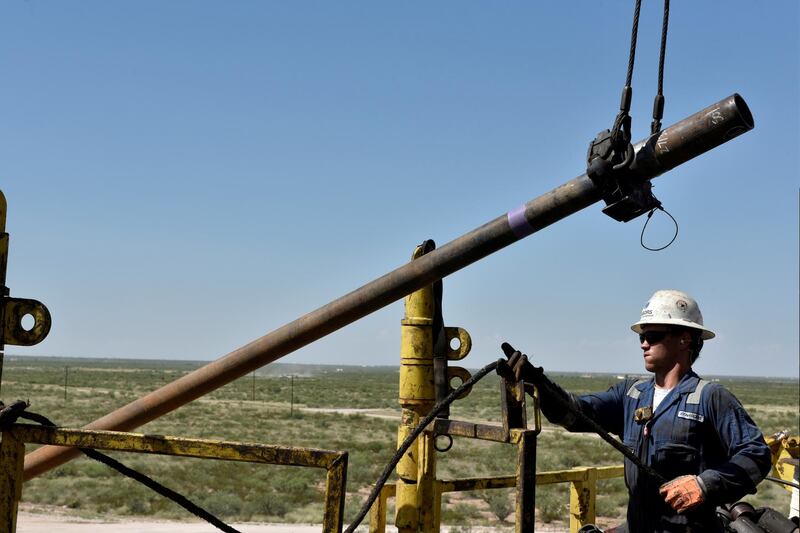Oil rounded off its worst quarter by the end of March as prices plunged 70 per cent from the start of the year, even as US President Donald Trump attempted to broker talks between Saudi Arabia and Russia.
An output restriction pact between members of Opec and producers outside the exporters' group expired at the end of a rocky first quarter for oil markets as the coronavirus dented global demand. The global market is now bracing itself for fresh supply of crude as Brent, the most widely used crude commodity benchmark and West Texas Intermediate languish at two-decade lows.
The London-based benchmark fell 66 per cent to settle at $22.74 per barrel at the end of March, while WTI fell 66.5 per cent to close at $20.28 per barrel.
"The declines far outpaced the oil price collapse in 2015-16 and the global financial crisis," the note by the bank's Mena economist, Daniel Marc Richards, said.
"The oil market now enters a new era where Saudi Arabia produces at 12 million barrels per day or more, a level that was only meant to be reached for emergency shortages."
Saudi Arabia and the UAE are expected to bring nearly 4m bpd in additional supply to the markets this month following the collapse of talks between members of the Opec+ alliance, which included Russia.
Riyadh is expected to operate at its full capacity of 12 million bpd, drawing on 300,000 bpd of stocks to meet additional supply. Saudi Aramco, which produces and sells oil on behalf of the kingdom, has indicated that the kingdom is unlikely to roll back the output for May and is likely to produce at full capacity for the rest of the year. Riyadh-based Jadwa Investment estimates that Saudi Arabia has around 154 million barrels of oil in stock.
However, Riyadh, which is targeting supply to Europe by stocking up barrels at its storage facilities in Egypt, is unlikely to find many buyers amid a fall in demand. While Chinese factory activity is reviving following the slow easing of quarantine measures, India, a major importer is under lockdown. Pakistan, another oil importer, banned the import of crude and products as its storage sites are full.
Around 20 million bpd is likely to flow into storage in April, according to Goldman Sachs. The bank also forecasts global consumption for crude will fall by a quarter as social distancing and lockdown measures impact 92 per cent of the world's gross domestic product.
President Trump, meanwhile, noted in an address on Tuesday that while oil's drop is the "greatest tax cut we've ever been given", the slump had hurt the US oil sector.
Mr Trump held talks with Saudi Crown Prince Mohammed bin Salman as well as Russian President Vladimir Putin, with the US set to join the discussions "at the appropriate time if need be".
However, reports attributed to Reuters later dismissed the possibility of an immediate three-way conversation between the producers.
With WTI dropping to $19.92 earlier this week and crude grades in Canada trending in the single digits, the outlook for North American crude looks bleak.
"While the pain immediately hits in the North American shale business, where cash and total costs are closer together, the suffering of the petro-nations comes more slowly but is likely to be longer-lasting," said Norbert Rücker, head of economics and next-generation research at Julius Baer.
"The double shock of the pandemic and oil politics suggests that oil prices will continue to swing wildly in the very near term," he added.
Brent was down 3.45 per cent trading at $25.44 per barrel, while WTI was down 0.63 per cent at $20.35 per barrel at 4.33pm UAE time.








